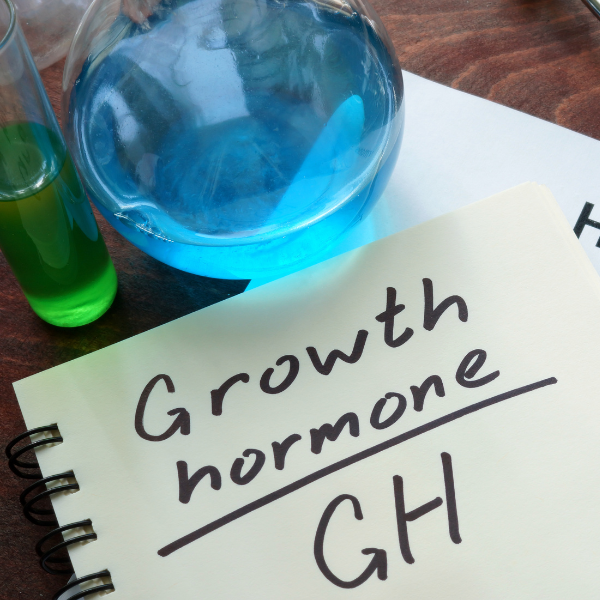
Hormones and Height: Understanding the Growth Hormone
Infinitree Editor
Hormones and Height: Understanding the Growth Hormone
When it comes to a child's growth, one hormone stands out as the superstar: the growth hormone (GH). This powerful chemical messenger, produced by the pituitary gland, plays a crucial role in determining your child's height and overall development. Let's dive into the world of growth hormone and understand its impact on your child's growth journey.
What is Growth Hormone?
Growth hormone, also known as somatotropin, is a peptide hormone secreted by the pituitary gland, a small organ located at the base of the brain. It's often called the "master hormone" due to its wide-ranging effects on the body [1].
How Does Growth Hormone Work?
Growth hormone stimulates growth in almost all tissues of the body capable of growing. It has both direct and indirect effects:
- Direct Effects: GH stimulates the division and multiplication of chondrocytes (cartilage cells) in growth plates, leading to bone growth [2].
- Indirect Effects: GH stimulates the production of insulin-like growth factor-1 (IGF-1) in the liver and other tissues, which mediates many of GH's growth-promoting effects [3].
Key Functions of Growth Hormone:
- Increases height during childhood and adolescence
- Helps build bone density
- Promotes muscle growth
- Influences fat metabolism
- Regulates blood sugar levels
- Supports immune function
Factors Affecting Growth Hormone Production:
- Sleep: The majority of GH is released during deep sleep stages
- Exercise: Physical activity can stimulate GH release
- Nutrition: Certain nutrients can influence GH production
- Stress: Chronic stress can inhibit GH release
- Age: GH production naturally declines with age
Supporting Healthy Growth Hormone Levels
While the body naturally regulates growth hormone production, there are ways to support healthy GH levels:
- Ensure adequate sleep: Aim for 9-11 hours for school-age children
- Encourage regular physical activity
- Provide a balanced diet rich in protein, complex carbohydrates, and healthy fats
- Manage stress through relaxation techniques and regular routines

Nutritional Support for Growth Hormone Function
Certain nutrients can play a supportive role in growth hormone function. This is where carefully formulated supplements like Opti-Up Alpha Plus can be beneficial.
Opti-Up Alpha Plus contains several ingredients that may support growth hormone function:
- L-Arginine: This amino acid has been shown to potentially stimulate growth hormone release [4].
- L-Glutamine: While primarily known for supporting muscle recovery, glutamine may also influence growth hormone levels [5].
- Alpha GPC: This compound may indirectly support growth hormone function by enhancing sleep quality and cognitive function.
- Colostrum: Rich in growth factors, colostrum may support the overall growth process.
Remember, while supplements can be beneficial, they should complement, not replace, a balanced diet and healthy lifestyle. Always consult with a healthcare professional before starting any new supplement regimen for your child.
By understanding the role of growth hormone and providing the right support, you can help your child maximize their growth potential during these crucial years of development.
[References]
- Melmed, S. (2009). Journal of Clinical Investigation.
- Isaksson, O. G., et al. (1982). Science.
- Yakar, S., et al. (2002). Endocrine Reviews.
- Kanaley, J. A. (2008). Growth Hormone & IGF Research.
- Welbourne, T. C. (1995). The American Journal of Clinical Nutrition.













